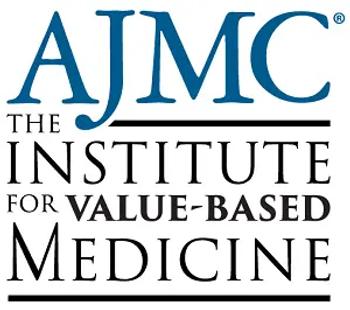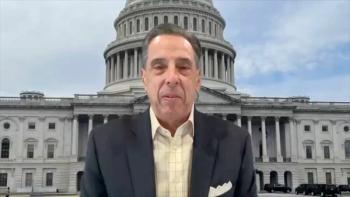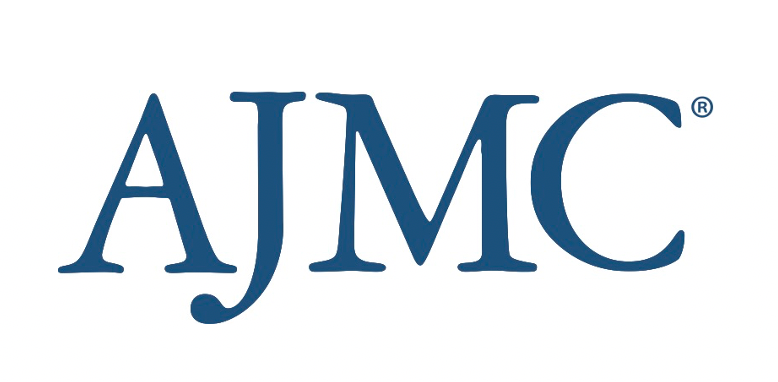
Policy
Latest News

Latest Videos

CME Content
More News

Coverage of the Institute for Value-Based Medicine session with Zangmeister Cancer Center, Columbus, Ohio.

Half of the surveyed adults reported difficulty affording their health care, and a large proportion said they delayed or avoided care or medication because they couldn’t afford it, often leading to their health problems worsening.

The Biden administration requested $1.55 billion from Congress to help address the nationwide fentanyl crisis; the US Department of Agriculture reported that millions more Americans were food insecure in 2022; the Biden administration released an updated cybersecurity toolkit to help defend the US health care infrastructure against hackers.

Ted Okon, MBA, executive director, Community Oncology Alliance, discusses early returns from the Enhancing Oncology Model and how community oncology practices are innovating in ways that can expand into other areas of medicine.

Senators advocate for TRICARE to stock and cover the OTC birth control pill; double the amount of health care workers experienced workplace harassment in 2022 compared with 2018; a survey found that young adults in the United States experienced depression and anxiety twice as often as teenagers.

Community oncology practices are witnessing a new dynamic in which more Medicare-eligible patients are still covered by commercial insurance, according to speakers at the Community Oncology Alliance Payer Exchange Summit, held October 23-24, 2023.

A poster presented at AMCP Nexus 2023 reported that payers believe implementing the Inflation Reduction Act (IRA) will impact Medicare Part D plans financially.

FluMist Quadrivalent could become the first self-administered flu vaccine in the United States; the American Society of Reproductive Medicine updates its definition of infertility to be more inclusive; the Environmental Protection Agency moves to ban the use of a cancer-causing chemical .

At the 2023 COA Payer Exchange Summit being held October 23-24 in Reston, Virginia, Lalan Wilfong, MD, US Oncology Network, emphasizes the importance of oncology care equity, ensuring continuity of care, and enhancing care coordination.

Medicare Advantage (MA) plans pose financial challenges for small rural hospitals; 2 bans proposed in Texas would prohibit transportation for abortion procedures; delays in reauthorizing US President's Emergency Plan for AIDS Relief (PEPFAR) risk the program’s effectiveness and integrity.

Health equity coverage appearing in the October 2023 issue of Evidence-Based Oncology.

Posters presented at the American Society for Reproductive Medicine 2023 Scientific Congress & Expo highlighted trends in fertility care amid the turbulent landscape following the Dobbs decision.

Study investigators note their meta-analysis may be the first to demonstrate the importance of interventions to support adherence to adjuvant endocrine therapy for breast cancer.

A 5-year randomized trial showed that the Million Hearts Model, which paid health care organizations to monitor and reduce cardiovascular disease (CVD) risk, was effective in reducing first-time heart attacks and strokes without associated increases in Medicare spending.

Anita Allen, PhD, professor of law and philosophy, University of Pennsylvania, discusses the impact of abortion regulations in different parts of the world on women's reproductive access and rights, as well as the repercussions of the Dobbs decision that overturned Roe v Wade.

Monica Bertagnolli, MD, fielded questions on hot-button issues during the long-delayed Senate hearing on her nomination to head the National Institutes of Health; Pfizer announces the list price for a 5-day course of its COVID-19 antiviral, nirmatrelvir/ritonavir (Paxlovid); a federal initiative is distributing funds to programs aiming to prevent drug overdoses in pregnant women.

During a session at AMCP Nexus, panelists provided a historical overview on the 340B drug discount program, highlighting the intentions of the plan and the research gaps leading to misconceptions about the program and whether it’s working to lower costs for patients.

During ESMO Congress 2023, sessions will focus on hot topics in therapeutic areas, such as the use of immunotherapies in both the neoadjuvant and adjuvant settings, as well as nontherapeutic topics, such as the needs of caregivers and advances in technology.

Amazon Prime air service is testing delivery of medication within an hour or ordering; Surging insurance costs are affecting 150 million Americans; Opponents of President Joe Biden's mental health care proposal argue potential rules could hinder access to quality care.

An increasing number of people with employer-sponsored insurance are covered by an insurer that offers Medicare Advantage in the state.

To ensure patients are getting timely access to their treatments, there needs to be better collaboration between payers and providers, said Christine Pfaff, RPh, senior regional director of operations, American Oncology Network.

Two posters presented at the American Society for Reproductive Medicine (ASRM) 2023 Scientific Congress & Expo showed trends in funding and insurance coverage for individuals seeking fertility care.

School nurses play an overworked and understaffed role; Merck's immunotherapy Keytruda (pembroilzumab) has been granted approval for pre- and postsurgical treatment in lung cancer; the FDA is helping to curb tobacco-related health disparities.

The level of biosimilar market sustainability differs between countries, largely due to variances in biosimilar policies and years of experience managing a biosimilar market.

Medicare Advantage star ratings reveal shifts in plan quality and performance; Rite Aid seeks debt reduction and restructures amid financial challenges; workers secure improved wages and staffing
















